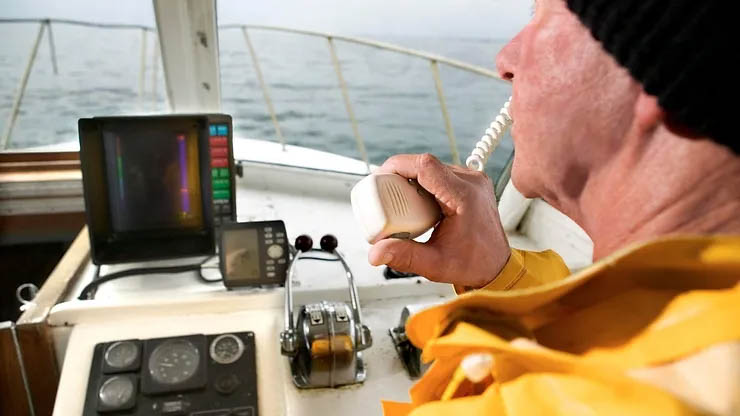Boaters on larger bodies of water are very familiar with VHF radios and all that comes with it, including the phonetic alphabet. In fact, I’ve seen a handful of boats that play off that for their name. I’m looking at you Whiskey Tango Foxtrot!
There are also standardized phrases used including sécurité (or “security call” if anglicized), pan-pan, and mayday.
But have you ever wondered about the reason we use those latter two?
If you’re a Buffalo Sabres fan when you hear “mayday” you probably think of Rick Jeanneret’s play-by-play from the 1993 Stanley Cup semifinals of Brad May’s overtime series clincher. Iconic, sure, but irrelevant to boating.
Both mayday and pan-pan come from the French language and, more specifically, the need to communicate with French aircraft in English airspace.
Back in the 1920s, air travel was really taking off – pun intended – with many flights crossing the English Channel from France to England. Radio traffic controllers needed something short, clear, and understandable to both languages.
The solution of “mayday” is commonly credited to Frederick Stanley Mockford, a senior radio officer at Croydon Airport in London. The story goes that Mockford took the French phrase “venez m’aidez” (French for “come help me”), dropped the first word, kept the “m’aidez” and its pronunciation but spelled it “mayday” to simplify it for English.
The still serious, but non-life-threatening, pan-pan call also shares a similar history, as the French word “panne” means breakdown.
And, as my French teacher from Grade 10 will attest, that essentially taps out my knowledge of the language!







